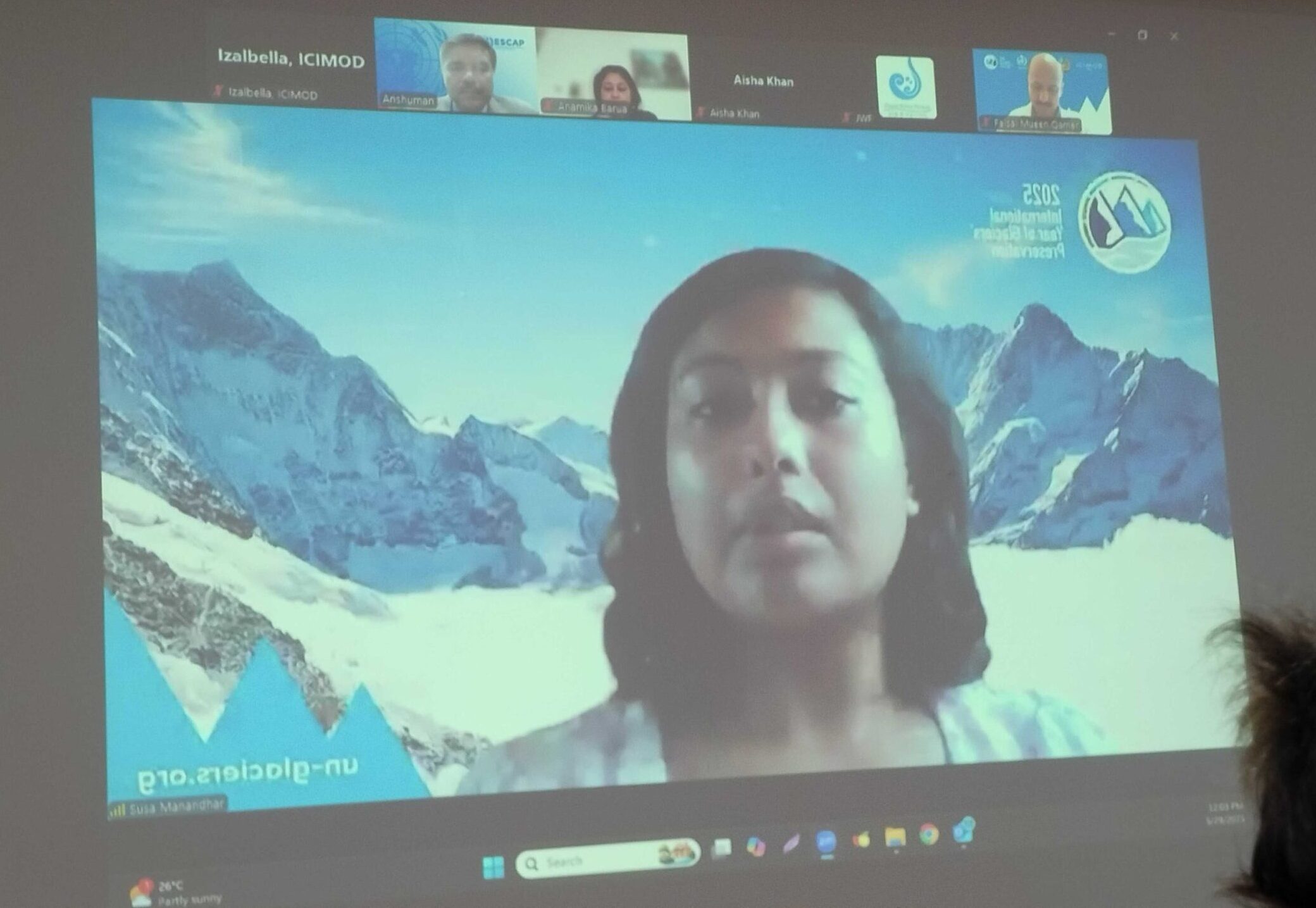The Small Earth Nepal (SEN) in partnership with International Centre for Integrated Mountain Development (ICIMOD) organized a youth and green economy session at Planet Under Pressure conference in ExCel Centre, London UK. The session was to explore the options and opportunities of green economy in south and central Asian region. The session was convened by Mr. JeebanPanthi of SEN and chaired by Mr. Tek Jung Mahat of ICIMOD. Altogether, four oral presenters shared their paperhaving one each for regional approach, central Asia, South Asia and a national case followed by an interaction session where more than 40 delegates from the world were participated actively. A poster was also displayed in the session.
The conference was to provide scientific guidance to the world leaders in the upcoming conference of United Nations Conventions on Sustainable Development (UNCSD)-popularly known as Rio+20. More than 3000 delegates and scientists were participated in the conference from 151 countries.
Mr. Tek Jung Mahat from ICIMOD presented an overview paper on Youth Perspectives on Promoting Green Economy in Asia Pacific Mountains: Options and Opportunities.
A large portion of the world’s population depends directly and indirectly on the use of mountain resources for their livelihoods and well-being. Mountains provide water, energy, food and place to live. Asia is unique among the continents as it is home to world’s all the highest mountains in the Himalayas and Central Asia. These remain unaffected to a large extent despite the rapid industrialization and significant economic growth achieved worldwide in last couple of centuries. These mountains are inaccessible, marginal, and fragile and this has prevented the mountain communities to benefit from landscape, cultural and biological diversity as well and the niche specific high value unique products it has.The situation in the mountain is worsening with low proportion of land available, extremely high rate of deforestation, and low GDP. These changes threaten and weaken mountain systems; they also present opportunities for building on their contributions to sustaining the regional and global environment and economy. Mountain resources and services are a prerequisite for achieving the goals of a low-carbon economy on a global scale. Though mountainous developing countries already have low-carbon economies, they have a high incidence of poverty. Therefore, the concern is how to sustain the availability of ecosystem services, strengthen resilience, and promote low-carbon based economic growth to reduce poverty.
Mr. Utkur Djanibekov from the University of Bonn, Germany presented his paper on Cooperation of cotton-growing farmers in Uzbekistan towards improved resilience against growing water scarcity in Central Asia.
Uzbekistan takes the fifth position among 90 cotton-growing countries and, after the USA, is the largest exporter. Yet, adjustment of cotton production can be an option to improve the incomes of farmers involved in cotton cultivation while ensuring the same levels of cotton production at the expected decline of irrigation water supply in rivers. We propose an alternative version of cotton policy where cotton production target is maintained, but farmers decide collectively where to cultivate cotton. The government should pay more attention to creating farm incentives in a way that if the cotton policy is modified sustainable farm development is not hampered by overuse of particular inputs. Without major breakthrough and investments, this policy change through established cooperation of cotton-growers would optimize land use and improve the crop yields at available technologies. The presented cotton policy change could be an approach for enabling agricultural resilience to more rapid and prolonged events of water scarcity and increasing demand for water due to population growth and industrialization.
Mr. Abhijit Shukla from Punjab University, India presented his paper on GO GREEN: Lessons for Sustainable Development in South Asia.
A look around shows that the planet is reeling under tremendous pressure. Automobiles, agriculture, shipping, textiles, communication networks, construction – the dimensions of green competition are changing like never before, each trying to outmanoeuvre, misbalance and bypass the competitive threat. Majority of the organizations today have taken to embrace thought provoking, energy conscious green ideas aimed at locating methods to transform our way of living. In the business context, the defining ones are, do green initiatives augment ‘competitive advantage’? Is environmental responsibility a key driver for ‘growth’ and ‘differentiation’? Is going green a profitable business aka a revenue driver? Firms opting to hop on the ‘green vogue’ fit in three broad strategies – accentuate, acquire and architect that companies can use to align their green goals with their capabilities and aim to establish core benchmarks in the industry. In the coming years, benchmarks created in the green standards will define and transform the competitive landscape and redefine the organization’s practices. Tackling the standards challenge head on provides an opportunity to differentiate the offerings thus add credibility to an enterprising organization and influence sustainability standards in the future. How far can implications be derived for the growing economy in South Asia.
Mr.Jeeban Panthi from SEN presented his paper on Preparing for Implementation of Green Economy as a Driver by Youth at National Level – A Case from Nepal.
Nepal having diverse natural resources and with mountain topography, there is lots of resources potential for green economy, to mention few are hydropower, biomass energy, eco-tourisms which are almost unique. Those resources have not been harvested properly due to lack of resources, technology and political instability. Youth capacitating and their motivation to work and stay here in Nepal is a great challenge as there is flooding of brain drain towards south for better opportunities. Today’s youth should focus towards creating the green jobs with the resources available which prevents abroad migration of youth for labor works. Youth require skills to function, but skill is not an alien thing, it has to be developed. Regional and global youth exchange program for sharing seems essential. Research, demonstration and development are the key ways for transiting towards green economy in Nepal. Intensive farming and animal husbandry have already been started in Nepal with the initiation of brained youth as few initiatives towards green economy.



